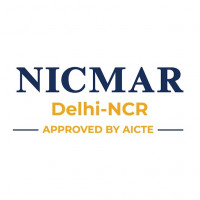Confused Between MBA and PGDM? Here’s How to Pick the Right One

Strong 8k brings an ultra-HD IPTV experience to your living room and your pocket.
Big question—Should you choose an MBA or a PGDM? You start researching and realise the two sound very similar. So, what’s the real difference between PGDM and MBA and does it actually matter?
This confusion is quite common.
Students and working professionals face this same experience every year. Both programmes are aimed at developing management and business-related skills and competencies, but are different in form, accreditation, overall cost and industry relevance.
Whether you are planning for finance, marketing, or another niche area, understanding those differences will help you make a smarter decision.
Let’s dive into what truly sets these two programmes apart!
Definition and Accreditation
An MBA is a post-graduate programme that focuses on management and leadership. It is designed to help students with skills and expertise in business principles and practices. These programmes are accredited by national education regulators such as the UGC.
PGDM (Post Graduate Diploma in Management) is a diploma offered by AICTE-recognised B-schools or autonomous institutions. But don't misunderstand the "diploma" - PGDM programmes often match or even exceed MBAs in terms of curriculum flexibility, industry relevance and practical learning.
Duration and Course Structure
Both MBA and PGDM generally span two years. PGDM programmes are offered by autonomous institutes which aren’t tied to rigid university guidelines. They regularly update their course content to reflect current industry needs.
In contrast, an MBA follows a more traditional academic structure. The focus leans heavily towards theory and course updates can take years to roll out. If you’re someone who prefers a research-oriented or academic route, an MBA might suit you better.
Cost and Investment
MBA programmes in government colleges are quite affordable as compared to PGDM. PGDM programmes usually charge higher fees, but they provide value-added features like industry certifications, leadership labs, international modules and real-time case study learning.
Industry Acceptance and Career Prospects
Most recruiters don’t draw a line between MBA and PGDM. They look at your capabilities, internships, communication skills and domain knowledge.
For example, take PGDM in Project Management. It gives students direct exposure to tools and methodologies. On the other hand, MBA programmes may not go into the same level of practical detail.
Specialisations and Flexibility
PGDM programmes offer a wider range of specialisations compared to MBA. There are many emerging fields, like Business Analytics, Digital Marketing, FinTech and Project Management, that are more commonly found in PGDM courses.
MBA programmes stick to core areas like Finance, HR, Marketing and Operations. While these are essential, the flexibility to explore new-age disciplines often rests with PGDMs.
Admission Process
Both programmes accept scores from the national level entrance exams, CAT, MAT, XAT or GMAT. The selection generally includes group discussions and a personal interview. PGDM institutes may prefer work experience or communication proficiency more than general management institutes, particularly for a specialised program.
If you're doing PGDM in project management, you will likely see an additional assessment of your technical expertise or project experience.
PGDM vs MBA — Which is Better?
Let’s be honest—your choice between PGDM and MBA can shape your successful career. Understanding the difference between PGDM and MBA is the first step you should take before starting your career in this industry. Ultimately, don’t pick based on what your friends are choosing or what acronym sounds coolest. Evaluate yourself, your strengths, career goals and how you prefer to learn.
If you want to acquire an industry-relevant education that prepares you for leadership positions, the PGDM may be the right option for you. If you are looking at more academic recognition coupled with longer-term research aspirations, an MBA programme is the best move for your career goals.
Note: IndiBlogHub features both user-submitted and editorial content. We do not verify third-party contributions. Read our Disclaimer and Privacy Policyfor details.





